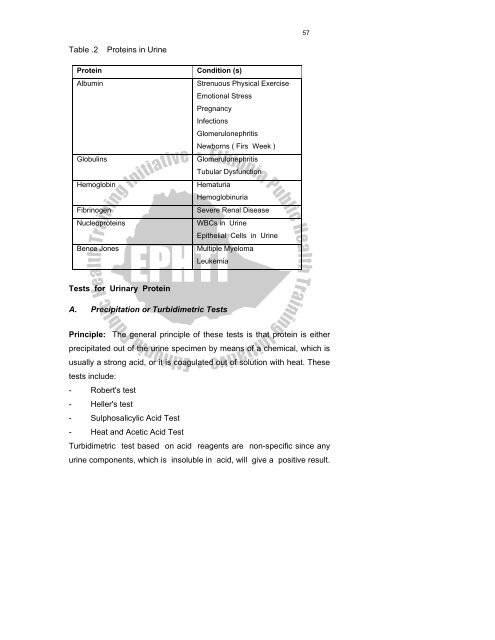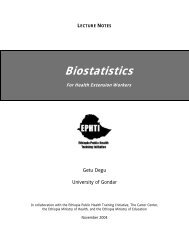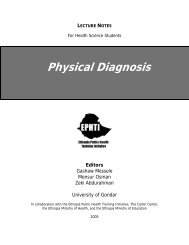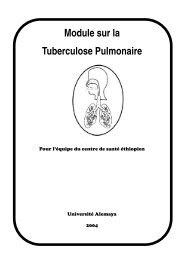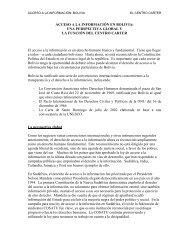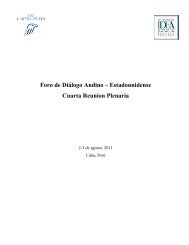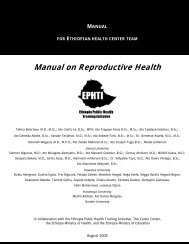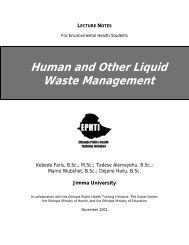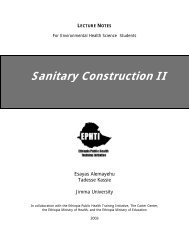Urinalysis - The Carter Center
Urinalysis - The Carter Center
Urinalysis - The Carter Center
You also want an ePaper? Increase the reach of your titles
YUMPU automatically turns print PDFs into web optimized ePapers that Google loves.
57<br />
Table .2<br />
Proteins in Urine<br />
Protein<br />
Albumin<br />
Globulins<br />
Hemoglobin<br />
Fibrinogen<br />
Nucleoproteins<br />
Bence Jones<br />
Condition (s)<br />
Strenuous Physical Exercise<br />
Emotional Stress<br />
Pregnancy<br />
Infections<br />
Glomerulonephritis<br />
Newborns ( Firs Week )<br />
Glomerulonephritis<br />
Tubular Dysfunction<br />
Hematuria<br />
Hemoglobinuria<br />
Severe Renal Disease<br />
WBCs in Urine<br />
Epithelial Cells in Urine<br />
Multiple Myeloma<br />
Leukemia<br />
Tests for Urinary Protein<br />
A. Precipitation or Turbidimetric Tests<br />
Principle: <strong>The</strong> general principle of these tests is that protein is either<br />
precipitated out of the urine specimen by means of a chemical, which is<br />
usually a strong acid, or it is coagulated out of solution with heat. <strong>The</strong>se<br />
tests include:<br />
- Robert's test<br />
- Heller's test<br />
- Sulphosalicylic Acid Test<br />
- Heat and Acetic Acid Test<br />
Turbidimetric test based on acid reagents are non-specific since any<br />
urine components, which is insoluble in acid, will give a positive result.


